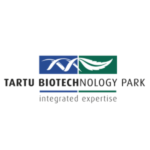ScanBalt Campus Knowledge Network in Informational Biology funded
ScanBalt Campus Knowledge Network in Informational Biology fundedScanBalt Campus Knowledge Network in Informational Biology (INBIO) – Nordic Network in Biological Informatics (NNBI) received 1 200 000 NOK (approx. 150.000 Euro) for doctoral education and researcher training from NordForsk.
The National Graduate School in Informational and Structural Biology (ISB) in Finland has coordinated an effort to link together organizations that offer national doctoral training in the Nordic region. NordForsk approved the application and the network is now operational for the period 2009-2011. One of the key goals is to extend the network as part of ScanBalt Campus INBIO to the ScanBalt region.
Funding received from NordForsk and Åbo Akademi (Turku, Finland) will supplement ISB’s own activities support as well as that of the other 3 doctoral schools. We aim to focus on multidisciplinary doctoral education in the Nordic and ScanBalt region as a whole.
Our founding members currently include 4 national organizations from Nordic countries within the Nordic Network in Biological Informatics, representing 114 research groups, 182 supervisors and postdoctoral participants and 188 doctoral students:
– National Graduate School in Informational and Structural Biology (ISB, Finland), prof. Mark Johnson, director of ISB (Åbo Akademi University); prof. Riitta Lahesmaa, director Biocenter Turku (University of Turku); Fredrik Karlsson, M.Soc.Sci., coordinator of ISB (Åbo Akademi University).
– National Center for Structural Biology (NorStruct, Norway), prof. Arne Smalås, director NorStruct (University of Tromsø); prof. Nils Willassen (University of Tromsø).
– Research School in Systems Biology (SysBio, Norway), prof. Stig Omholt, director (Center for Integrative Genetics); prof. Gaute Einevoll (Norwegian University of Life Sciences).
– National Research School in Genomics and Bioinformatics (GenBio, Sweden), prof. Anders Blomber (Göteborg University); prof. Olle Nerman (Chalmers University).
Our main targets are:
– Improve the quality and breadth of doctoral research and education in our own organizations and in the ScanBalt region as a whole.
– Promote the integration of informatics approaches within the biosciences and the sharing of tools and infrastructure.
– Improve the participation with industry, especially SMEs: some members already have ties to industry and participants from SMEs belong to some schools.
– Increase the collaborative and multidisciplinary cooperation through shared courses, exchange visits and research collaborations.
– With regard to research visits, the network seeks to open resources (know-how, equipment and other infrastructure) for the use of collaborating members.
– Achieve a critical mass of expertise in the covered areas of interest that can be exploited by others.
– Increase cooperation at all levels, including organization and administration, joint activities, among schools and between individuals.
– Extend our consortium to the participation of other national doctoral organizations in the field throughout the ScanBalt region.
– Promote the Council of Europe’s policies on gender mainstreaming, and this network has a strict policy of nondiscrimination and with opportunity for equal participation, regardless of gender, nationality, etc.
– Continue to provide and extend education on ethics and scientific malpractice.
As stated, we have received funding from NordForsk for 2009-2011 to facilitate mobility and joint educational opportunities among the members. Our doctoral schools already have funding for student doctoral studies (188 doctoral students are funded through a combination of state funding and funding raised by participating supervisors) and for activities that include national and international courses and workshops, and research visits. Some of our schools already have active participation by SMEs.
Our individual organizations already support, organize and host multiple courses and workshops during each year. We aim to
– Advertise our activities across the network.
– Officially open our separate activities to participation by other schools.
– Develop joint courses and workshops, including the participation of industry.
– Provide wider access to equipment and other infrastructure.
– Identify possible partners and extend our cooperating network to other national doctoral schools that exploit the synergy of multidisciplinary doctoral research and education invoking both computational and experimental research in the biosciences.
In line with our objectives to extend he network throughout the ScanBalt region, the Academy of Finland and Deutsche Forshungsgemeinschaft have announced a bilateral call for German-Finnish Researcher Training Cooperation, with a closing date of 31.01.2009. We would be interested in networking with national doctoral schools in our fields of interest from Germany and elsewhere.
For further information, please contact us at the ScanBalt Campus Knowledge Network in Informational Biology at












